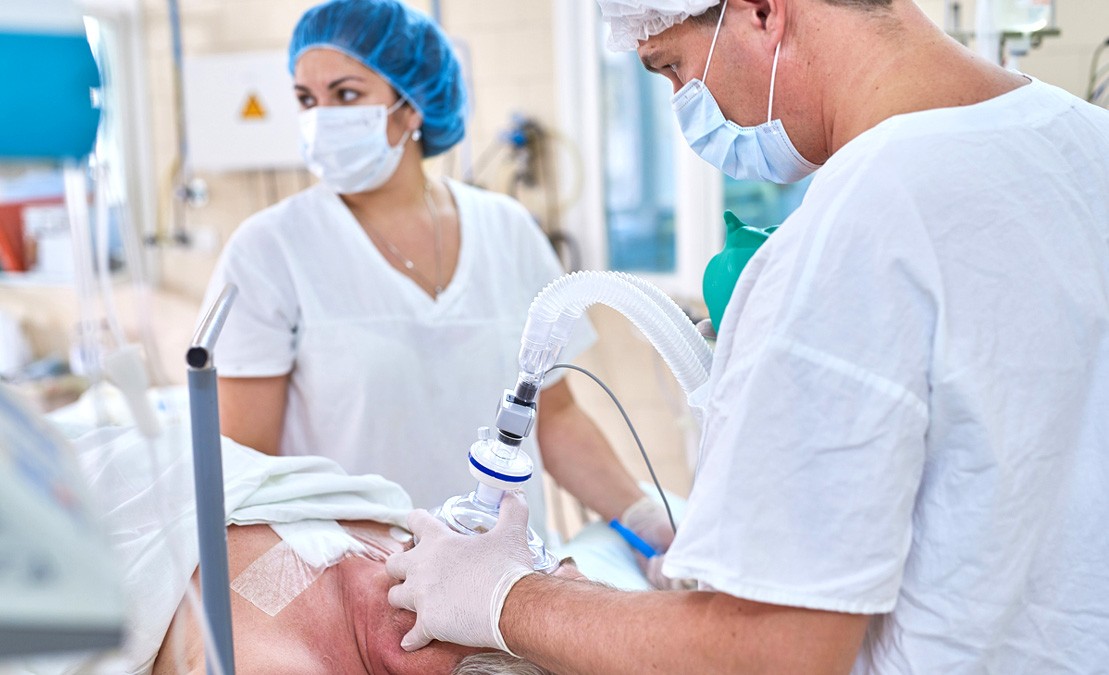After two years of being a full-time medical student, now it’s time to leave the lecture hall, put on the white coat and learn how to take care of patients.
For many medical students, starting an anesthesiology clerkship is a fascinating experience as they will learn how to put patients in a state of unconsciousness to perform a medical procedure and then bring them out of their condition and wake them up.
The anesthesia clerkship is an exciting educational experience in which you will be exposed to a lot of aspects of anesthesiology in a well-structured and supervised manner. Aspiring doctors who are interested in anesthesiology will get some hands-on training and important skills from seasoned anesthesiologists. Though anesthesiology is not part of the core curriculum of clinical sciences program, many medical schools offer elective rotations in this discipline.
Anesthesiology clerkships will help you develop a completely new skill set, learn how to perform a variety of medical procedures and explore the specialty in depth. If you want to make the process of anesthesiology residency selection easier and prepare in advance for residency, here are some useful tips that help you maximize your anesthesiology clerkship.
Become Familiar with Anesthesia Equipment
Before the rotation begins, ask your resident or attending anesthesiologist to explain the usage of machines, drugs, IV kits and any other equipment used during and post-surgical procedures. At first, you will find anesthesia equipment intimidating, but soon you will get familiar with the monitors, suction, ventilators, pumps, drugs and other important equipment. By assisting the attending anesthesiologist, you will easily learn how to set up the operating room and what is the function of every single device and drug.
Prepare for the Surgery in Advance
In hospitals, cases are usually assigned one day prior to the procedure to residents and attending physicians. Discuss all the cases with your resident or attending physician in advance that your team will encounter. You can visit the patient to check his/her condition, read about their medical condition and anesthetic considerations related to their surgery. You can also perform an anesthetic preoperative evaluation on the day before the surgical procedure. This will help you better prepare for the medical procedure and enable you to ask insightful questions that will enhance your learning.
Always Ask Questions
Anesthesiology is a complex medical specialty that is more than intubating and injecting propofol. In order to develop a comprehensive understanding of pharmacology, physiology, and anatomy and how to apply these concepts, you should ask questions during your clinical rotation. Asking questions will help you clarify any misconceptions and develop a deeper understanding. This will enable you to build a strong foundation for the time when you enter the operation theatre as an anesthesiologist.
Become Familiar with the Surgical Procedure
Arriving earlier on your rotation will help you carefully evaluate the patient case, discuss the anesthetic plan of a patient with your attending and assist residents with the setup of the operating theater. Become familiar with the type of procedure your team will be going to perform, read about how the procedure will be performed. Watch tutorials and videos to learn how every single step is performed and practice on anesthesia simulation if available.
Stay Attentive
Keep in mind to become a successful anesthesiologist, you are supposed to pay attention to every single detail. During your anesthesiology rotations, you are responsible to carefully monitor the vital signs of the patient after inducing anesthesia and intubation. You make sure that the heart and lungs of the patient are working properly, the fluid bag is running smoothly. If you observe anything that’s out of place, immediately bring it to your attending anesthesiologist’s attention.
Take Ownership
If you really want to make the most of your anesthesiology rotations, it is highly advised to take initiatives to show your interest in this area of medicine. For instance, you can set the position of the patient, place blood pressure cuff, insert IVs, draw up medications and intubate.
Keep Calm & Adapt Things
Highly experienced anesthesiologists will always make things look simpler and easier. Since you are in a learning phase, it will take some time, motivation and hours of practice to excel in anesthesiology. Be patient, don’t get frustrated, and don’t shy away from asking for help. You will soon learn how to put on a tourniquet, unlock the bed, mix and dilute a drug, spike an IV bag and empty a Foley. By performing these tasks repeatedly, you will soon learn how things work. If you encounter any issues, discuss them with your attending anesthesiologist to resolve the matter.
Communicate Well with Patients
Prior to performing an anesthesia preoperative evaluation, visit the patient and introduce yourself as a medical student member of the anesthetic team. Prepare them for the critical time of their lives and encounter their intense emotions before the procedure begins.
These tips will certainly help you make the most of your anesthesiology clerkship experience while preparing you for your residency.







